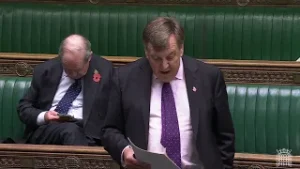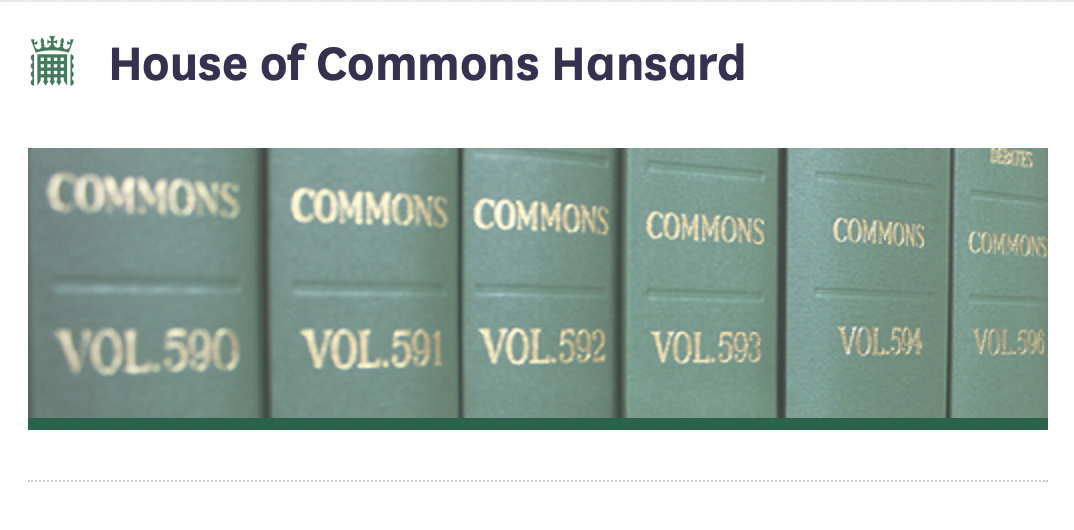I congratulate my hon. Friend the Member for Folkestone and Hythe (Damian Collins) on securing the debate, on the second attempt, after Prorogation got in the way last time. As he said, we had this debate last year, when a great number of concerns were expressed. Since then, the freedom and safety of journalists have deteriorated markedly. The World Press Freedom Day global conference this year set the theme of journalism under digital siege.
Sadly, since then, it is no longer under digital siege. Journalists are being killed simply trying to do their job, while displaying enormous courage in doing so.
The good news is that last year I lamented the fact that the United Kingdom was 33rd on the list of countries for press freedom, when I said we should be doing much better. I am pleased that this year we have been ranked at number 24. To some extent, that is not because of dramatic improvement in this country, although there has been improvement. It is more due to the disastrous deterioration in a large number of countries across the world.
I want to highlight some of the things we have done in this country. I was responsible for drawing up the national action plan for the safety of journalists, which has now been emulated in a number of countries. We talked to journalists, the National Union of Journalists, the Society of Editors, the News Media Association, the police, the prosecuting authorities and campaigning organisations, such as Reporters Without Borders and Index on Censorship, to draw up a strategy to improve the safety of journalists in the UK. We also issued a call for evidence, which had 360 responses and showed that a high proportion had encountered threats, violence or intimidation. One in three female journalists in the UK do not feel safe doing their job.
There is clearly still work to do, but measures are being taken. I entirely agree with my hon. Friend’s comments about the Online Safety Bill. It is an important measure, but we need to make sure that legitimate journalistic content is protected in the Bill. I welcome the measures already taken, but I think more could be done. I also strongly welcome the measure the Government are considering to counter SLAPPs—strategic lawsuits against public participation—which are used by rich oligarchs to try to suppress investigative journalism. I also welcome the measures to establish the digital markets unit, which, as my hon. Friend rightly says, will seek to try and right the balance between the big tech platforms and the news organisations on which they feed but to which they give little remuneration.
The UK’s record is generally good. I am also proud that this country was one of the founders of the Media Freedom Coalition across the world, with 50 countries now signed up to the global pledge. I lead the UK delegation to the Organisation for Security and Co-operation in Europe Parliamentary Assembly. We will meet for the annual conference in Birmingham next month and I am delighted that the motion I have tabled on the safety of journalists will be debated there.
My hon. Friend the Member for Folkestone and Hythe was right in saying that there are a large number of countries where journalism is quite a dangerous profession. In many cases, journalists have suffered intimidation, violence, imprisonment or sometimes even death. I want to concentrate on two countries in particular. The first is Ukraine, where journalists are displaying incredible bravery. My hon. Friend was quite right to name the eight who have sadly been killed during the course of the conflict. However, it is not just since the Russian invasion that journalists have been under threat.
I want to highlight one organisation, called Ukrayinska Pravda, or Ukrainian Truth, which was set up by two journalists in 2000. Since then, it has expanded and recently published a leaked list of more than 100,000 names of Russian military personnel inside Ukraine, as well as inventories of oligarchs’ yachts. It has fought corruption in that country. I want to put on record that the news organisation was founded by two people, Olena Prytula and Georgiy Gongadze, to expose corruption. In September 2000, Gongadze disappeared. Two months later, his beheaded body was discovered in farmland near Kiyv. Prytula was urged to flee. She did not; she carried on and established a relationship with another journalist, Pavel Sheremet. In July 2016, he too was murdered—assassinated when her car exploded while he was driving. Journalists have been working in Ukraine against corruption and against the Russian influence for a number of years. In doing so, they have too often paid the price with their lives.
The other country where media freedom has now almost been extinguished in its entirety is Russia itself. We know through Justice for Journalists that there were something like 24 attacks on journalists in the last few years, as well as 78 non-physical attacks, and Russia has now passed new laws that make it almost impossible for legitimate journalism to take place. It is now a crime even to describe what is happening in Ukraine as a war, and journalists are being imprisoned. As a result, independent journalism has been snuffed out. The Russian people are denied the ability to access the truth, because at the same time, Russia has closed down access to international social media sites such as Facebook and Twitter, with the result that Russian people are dependent entirely on state-run and state-controlled media.
Most recently, Russia has retaliated against the work of independent journalists seeking to expose the truth of what is going on. I am one of the Members of this House—I have no doubt that others in this debate are also included—who are on the list of parliamentarians who have been sanctioned by Russia and are no longer allowed to visit the country. That list has now been extended to include 29 British journalists, and I have no doubt that Richard Sharp, Tim Davie, Clive Myrie, Nick Robinson and Orla Guerin will be almost flattered to find that they are on that list, in the same way that we almost regard it as a badge of honour to have been identified by Russia as people who speak out against the appalling abuses that are taking place in that country and which they are inflicting on Ukraine. It is not just the BBC but Cathy Newman of Channel 4, Sophy Ridge of Sky, John Witherow, Chris Evans and Kath Viner: some of the most distinguished journalists in Britain are all now banned, like ourselves, from visiting Russia.
I fear that media freedom is suffering very seriously across the world, but no more so than in Russia and Ukraine. The purpose of the debate is to cast a spotlight on that, and I hope that we will continue to do so each year as long as those abuses take place.

